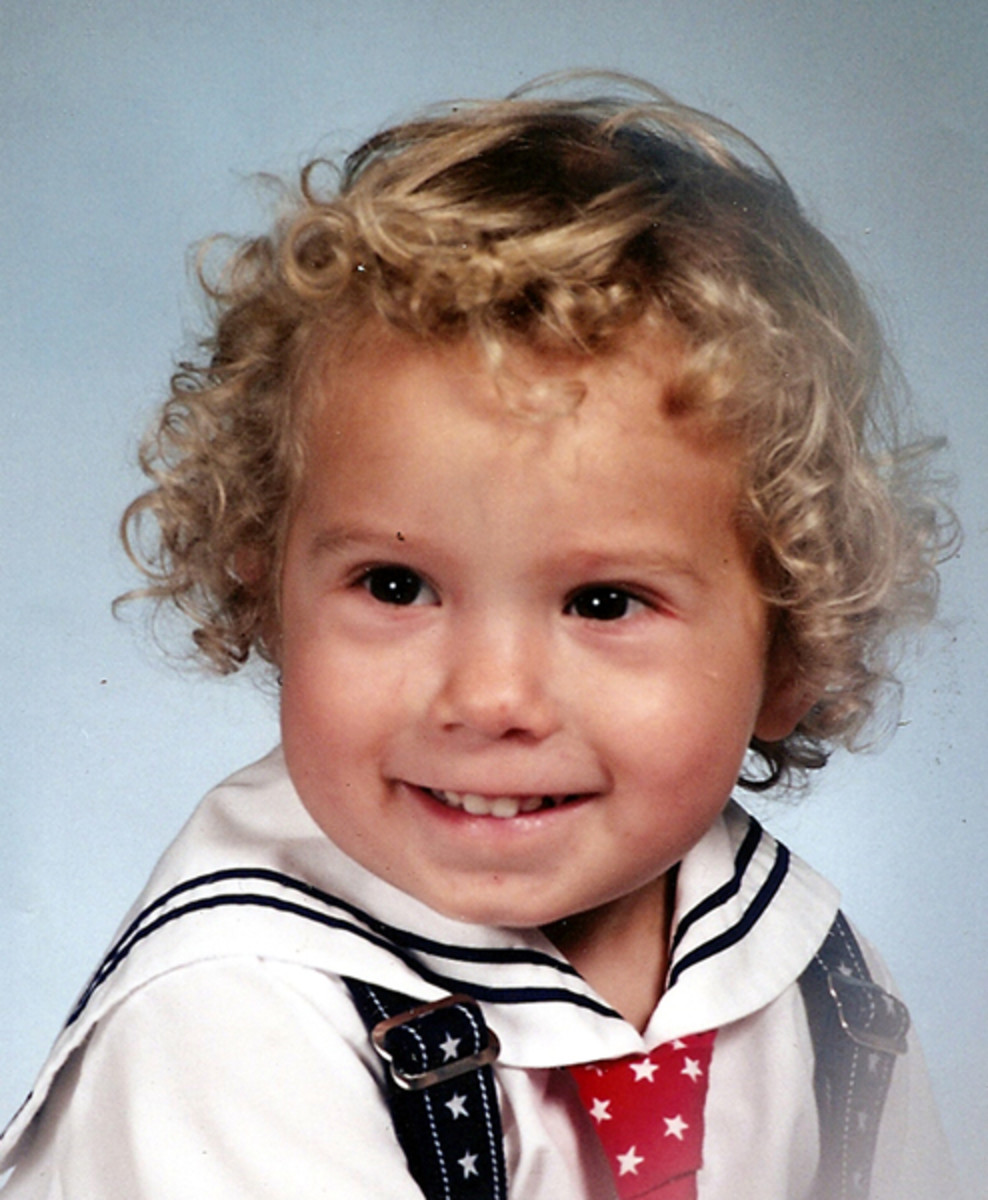Why Having HEALTHY High Self-Esteem Is Very Important To Children- How YOU As Parents Can Help!, Part I

The GREATEST Legacy That Parents Can Impart To Their Children Is A Healthy High Self-Esteem
It is the ultimate goal of parents to have their child possess a healthy high self esteem. There is nothing more empowering for a child to possess the prerequisites of a healthy high self-esteem. Children who have healthy high self-esteem have an inner self confidence that no one and/or no circumstances can alter.
Children with healthy high self-esteem have the innate survival skills to navigate life and all its precarious situations. They have an inner knowing that although they are not invincible, they are okay and/or more. They also tend not to be defeated and/or discouraged by the less than positive aspects and/or situations of life. They tend to be quite undaunted by the normal challenges of life.
Children possessing healthy high self-esteem will not be taken advantage of by other children. They will know how to effectively stand up for and to defend themselves. They will not let themselves be abused by others. Studies show that bullies often target children who have low self-esteem. To put it more succinctly, bullies can smell their victim and know who they can harass and/or abuse like a vampire can detect blood.
Children who have healthy high self-esteem are more likely to be high achievers because they have a can-do mentality. They also are the least likely to be influenced negatively by others, especially peers. Children who are drawn to deleterious activities such as joining gangs, delinquency, and/or experiment with drugs and other destructive activities often have low self-esteem. They portend that they are insignificant, believing that indulging in such activities will make them feel cool and important.
While many parents purport that they want their children to have healthy high self-esteem, they are doing things which create the diametrically opposite in their children. Many children do not have sufficient self-esteem because of the parental messages they receive. Other children are inculcated that having healthy high self-esteem is akin to being conceited. The parental message that they were indoctrinated with was do not dare think that you are important. Some parents add to this who exactly do you think you are, you are getting a swelled head, and/or do not be conceited!
Here are the ways that parents can effectively increase their children's self-esteem:
(1) Do not infantilize your children. Yes, you love your children and consider them your babies. However, they should be allowed to develop and mature into competent adults. They want to explore and to do things for themselves. This is a natural part in developing dexterity and increasing independence. Nothing makes a child feel more important and successful as when they can effectively master certain age appropriate tasks.
Children who are infantilized are those that are never allowed to do things for themselves. Their parents portend that they are children and are too young to do such and such a task. There are some parents who relentlessly perform tasks for their children that the latter are perfectly capable of performing themselves. How else are they going to learn if they do not undertake the tasks themselves.
When parents adamantly refuse to acknowledge that their children will mature and become increasingly independent of them, they are inadvertently mentally and psychologically damaging their children. In fact, this can be considered child abuse of the worst kind. Nothing is more egregiously sad than for children whose parents insist on treating them as if they are infants when they are of the age to being able to be somewhat independent.
News flash, you as parents are not going to be there for your children forever. What will happen to them when you are no longer there? Children need to develop the necessary skills to become autonomous and independent individuals. People who are infantilized tend to be abhorrently dependent upon others and do not possess the necessary survival skills. Love your children but treat them like their respective ages by letting them do age appropriate tasks!
(2) Do not indulge in the art of comparisons. In other words, children do not appreciate being constantly compared to their siblings, cousins, and/or other children. Each child has unique personality and characteristics which should be honored. Children who are valued for their own unique characteristics and personalities are more likely to develop and/or possess healthy high self-esteem than children who are constantly compared to their siblings, cousins, and/or other children.
Children who are constantly and consistently compared to other children begin to develop an inferiority complex. They believe that they are and will never be as good as those who they are compared to. There are some children who become quite defeated and resigned because they portend that if they are not good enough and/or no good, why even attempt to try.
Each child in the family has his/her good characteristics and unique talents. It is the duty of parents to recognize such talents and to develop these talents to the utmost. Happy families and therefore happy children are those that are accepting and appreciative of each one's unique characteristics, personalities, and talents.
(3) Constantly censuring of children. There are parents who strongly believe that their children must be as perfect and/or near perfect as possible. They do not realize that they have children on their hands. They mistakenly believe that they have little adults.
What these parents do not realize that children do make mistakes along the way. That is how they learn and grow. Making messes is part of being a child. However, these parents believe that children should be perfect automatons who do not make either messes or mistakes.
There are some parents are clearly are quite impatient with the normal foibles that are integral components of childhood. They do not want their children to be children. To them, that would be awkward. It is these parents' life goals to have an extremely orderly and punctilious little adult in their own images.
Parents must correct children for them to learn and grow from their mistakes. However, there are parents who incessantly do so. The language and dexterity of children are not as developed as adults but some parents fail to acknowledge this. In their estimation, there is absolutely no excuse for a child to be not as coordinated.
Well, when children are constantly corrected and reminded of their mistakes, they believe that they will never be good enough. They often wonder WHAT DID I DO NOW to incur their parents' constant wrath. They are between a rock and a hard place.
If a child never receives praise but always criticism, he/she will never develop a healthy high self-esteem. Besides that, he/she was become quite timorous and risk aversive, being afraid to try new and unusual things lest a mistake will be made. He/she will prefer to be always safe and will remain on the safe and narrow road.
(4) Do not consider your child a failure because he/she did not succeed and/or win at a particular task. There are some parents who have the premise that if their children undertake a task, that task had better be as perfect or they had utterly wasted their time and effort. These are the parents who become quite incensed that their children made a 99% instead of a 100% although the latter performed the best that they could.
There are parents who believe that being one's best is not good if he/she is not the winner and/or on top of the mountain. They further portend that there are only two people in life, winners and losers. They do not want their children to be losers.
Children who are inculcated in this philosophy that to fail is a mortal sin, believe that they are not worthwhile unless they are always winning. Well, life does not go that way. In life, we win and we lose. That is an integral part of life. For any parent to expect otherwise is totally unrealistic. Children do not win all the time. They do fail on occasion.
There are children whose self-esteem is in direct correlation as to how they performed a certain task. If they win, they feel that they are the greatest around. However, if they lose, they feel that if they are nothing at all. A child's self-esteem should never be contingent as to how they perform. Even if they occasionally fail, they must be assured that they are still worthy people and that failure is not the end of the world.
Children who are told that they must win believe that everything they undertake must be contingent upon winning. They learn not to appreciate themselves but are constantly remaking themselves over into an unrealistically idealized version of themselves. There are many children who resort to cheating and /or less than honest methods in order to win and/or succeed.
Children want to know that although they have failed, there is still unconditional acceptance by their parents. Parents must tell their children that failure is an integral part of life. Yes, we all fail and will fail many more times in life. Failure teaches us certain lessons including what not to do and how we could do the task better! Children who are taught to embrace failure and that they do not always have to win develop a strong resilience which is beneficial in their academic, social, and career lives. These are the children who are the risk takers and if they do fail at a certain task, they can brush themselves off and proceed again!









